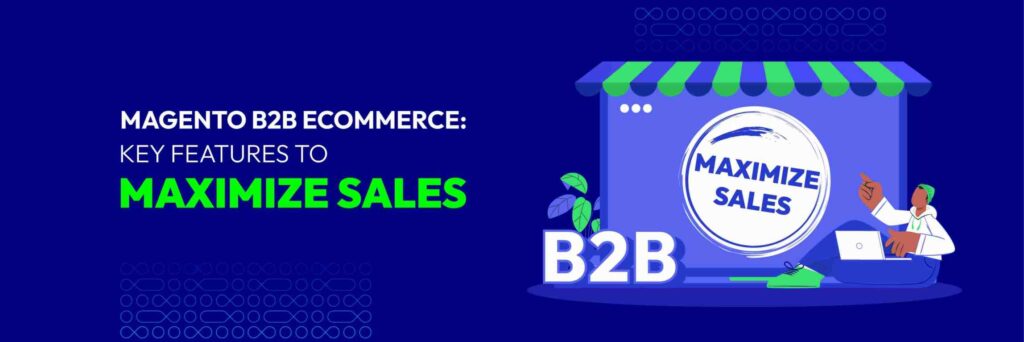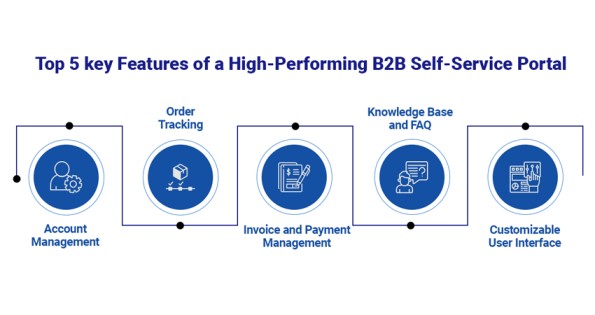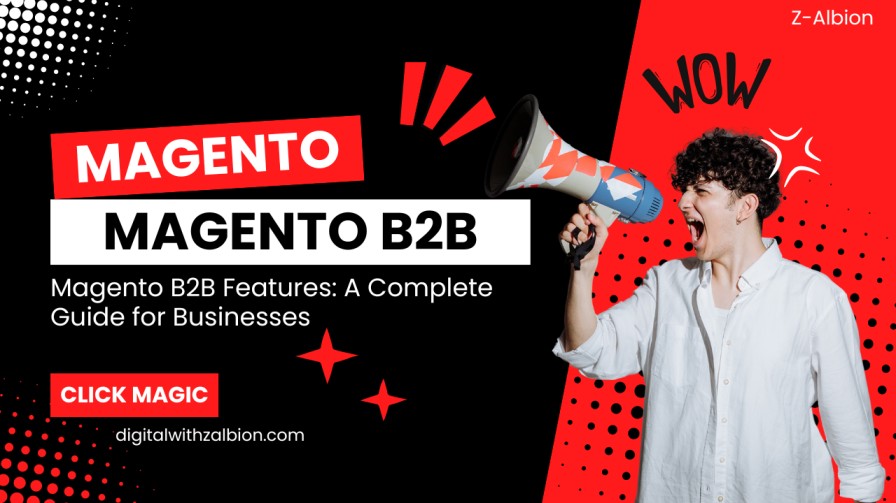1. Introduction / Magento B2B
A. Overview of Magento B2B
Magento B2B is a well-regarded eCommerce platform that enables businesses to create online stores tailored to their specific needs. With roots tracing back to 2008 Magento has grown significantly, evolving from a focus primarily on Business-to-Consumer (B2C) transactions a robust solution for Business-to-Business (B2B) operations. This shift acknowledges the unique demands of B2B transactions, including complex pricing, bulk ordering, and a more nuanced customer relationship.
When comparing Magento B2B to B2C, we see distinct differences. For instance, B2B transactions often involve larger order quantities, multiple decision-makers, and the necessity for personalized pricing and terms. In contrast, B2C focuses more on individual consumer behavior and straightforward shopping experiences. Understanding these nuances is critical for businesses considering which platform best suits their needs.
B. Importance of B2B Ecommerce
B2B eCommerce is thriving. Recent statistics indicate that the global B2B market will surpass $20 trillion by 2027. This growth is fueled by several trends, including the increasing reliance on technology and online purchasing among businesses.
Dedicated B2B platforms like Magento provide several benefits, such as:
Enhanced Efficiency: Streamlined processes reduce the time spent on orders and invoicing.
Improved Customer Experience: Tailored solutions meet the complex needs of B2B transactions.
Greater Scalability: Businesses can grow their eCommerce operations without a complete overhaul of their systems.
C. Target Audience for B2B Solutions
Several types of businesses benefit from Magento B2B features. Manufacturers, wholesalers, and distributors often find robust solutions that align with their operational needs. B2B customers typically have distinct purchasing behaviors, such as:
Longer Decision-Making Processes: Decisions are often made by multiple individuals within an organization.
Focus on Price Negotiation: B2B buyers tend to negotiate prices rather than accept standard listed prices.
Personalized Purchases: Businesses appreciate solutions that cater specifically to their unique needs, making personalization crucial.
2. Key Features of Magento B2B

A. Customer Segmentation and Pricing
Magento offers powerful tools for customer segmentation. Companies can create specific groups based on criteria such as industry, purchase history, or location. This segmentation allows businesses to implement dynamic pricing models tailored to each group, enhancing the overall purchasing experience.
Special product pricing options can also be set for B2B customers, ensuring they receive competitive rates that align with their buying behavior. This flexibility encourages customer loyalty and repeat business.
B. Custom User Accounts
One of Magento’s standout features is its ability to create custom user accounts. Organizations can set up multiple user accounts under a single business profile, allowing for role-based permissions and access control.
This feature streamlines user experience by tailoring dashboards to specific roles, ensuring that employees see only the information that is relevant to their functions. Such customization not only saves time but improves overall efficiency.
C. Quote Management System
Magento’s quote management system is particularly valuable for B2B transactions. It allows businesses to create, manage, and respond to quotes effectively.
By integrating the quote process into the purchasing experience, businesses can facilitate negotiations and expedite order finalizations. This efficient system nurtures relationships and fosters a better understanding of customer needs.
3. Enhancing B2B Functionalities with Customization

A. Flexibility in Product Catalog Management
Managing a product catalog with Magento is simple and efficient. Businesses can categorize and organize products for easy navigation, ensuring that buyers find what they need quickly.
Customizable product attributes allow B2B buyers to view specifications that matter most to them, catering to diverse purchasing requirements. Additionally, inventory management tailored specifically to B2B needs ensures that businesses can handle bulk orders with ease.
B. Advanced Checkout Processes
Magento streamlines the checkout experience, especially for bulk orders. The platform allows businesses to offer multiple payment and shipping options, accommodating the unique needs of their clients.
Incorporating purchase orders into the checkout process is a significant feature that simplifies transactions and increases customer satisfaction.
C. Integration with ERP and CRM Systems
Integrating Magento with existing Enterprise Resource Planning (ERP) and Customer Relationship Management (CRM) systems is crucial for B2B success.
This integration enhances operational efficiency by allowing for real-time data synchronization. Businesses can make data-driven decisions, leading to improved customer service and better relationships with clients.
4. Leveraging Marketing Tools for B2B Success
Magento B2B

A. Email Marketing and Automation
Magento’s email marketing features are geared specifically towards B2B businesses. Automating communication can assist in nurturing leads, ensuring that potential customers receive timely and relevant information.
Personalization techniques play a significant role in B2B email campaigns. Tailoring messages based on customer preferences and past purchases can lead to higher engagement rates.
B. Content Marketing Strategies
Creating valuable content targeted towards B2B buyers is essential for establishing authority and building trust. Blogs, guides, and industry resources can position your business as a thought leader and attract more traffic.
Many businesses overlook SEO best practices, especially in the B2B realm. By optimizing your content for search engines, you can improve visibility and reach your target audience more effectively.
C. Leveraging Social Proof and Reviews
Testimonials and case studies serve as powerful tools in B2B marketing. They provide potential customers with real-world examples of your products or services in action.
Encouraging customer reviews can also foster trust and credibility. Highlighting positive feedback through various channels can help showcase your business’s value to prospective clients.
Table of Contents
5. Analytics and Performance Tracking
Magento B2B

A. Utilizing Magento Reports and Dashboards
Magento’s built-in reporting features are designed to aid B2B businesses in tracking their performance effectively. Customizing dashboards allows for quick insights into key metrics, enabling businesses to respond swiftly to market changes.
Important key performance indicators (KPIs) to watch include sales growth, average order value, and customer acquisition costs. Keeping an eye on these figures can drive informed decision-making.
B. Integrating Google Analytics for Enhanced Insights
Integrating Google Analytics with Magento is a powerful way to enhance your understanding of B2B performance. Not only can you monitor traffic and conversion rates, but you can also set up goals that align specifically with your B2B objectives.
By tracking customer interactions on your site, you can refine your strategies and ultimately improve sales performance.
C. Customer Behavior Analysis
Understanding customer journey mapping in B2B is essential for optimizing the purchasing experience. By analyzing customer behavior, businesses can identify pain points and areas for improvement.
Tools and techniques for this analysis can help businesses make informed, data-driven decisions that enhance the overall B2B experience.
6. Conclusion and Future Trends
Magento B2B

A. Summary of Magento B2B Features
In summary, Magento offers a comprehensive suite of features that cater specifically to the needs of B2B businesses. From customer segmentation to quote management, these tools provide the necessary support for growing and nurturing business relationships.
B. Future Trends in B2B Ecommerce
As technology continues to evolve, B2B eCommerce platforms are also adapting. Future trends may include increased use of AI for personalization, enhanced mobile experiences, and improved supply chain management tools.
Customers will also likely continue to seek a more seamless buying experience and more sophisticated digital interactions.
C. Final Thoughts on Choosing Magento for B2B
When selecting a B2B platform, businesses should consider their specific needs and the features that will benefit them most. Magento stands out as a robust solution for B2B, providing the tools necessary for growth and customer satisfaction.
Exploring Magento’s features could be the first step towards enhancing your B2B operations and meeting the evolving demands of the market.



